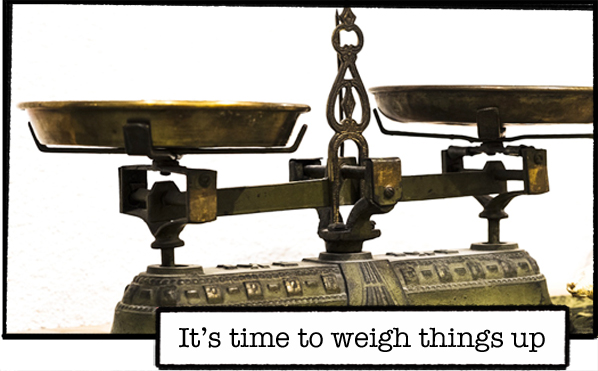Where do you see yourself in 5 years?
If the thought of answering this question brings you out in a cold sweat, then this blog post is for you. With a little mental adjustment, this question will kick-start your brain, so it starts fizzing with possibilities.
As someone who once lied during an interview when asked this question rather than admitting I honestly didn’t know, the irony of me writing this does not escape me.
However, my advice to you with the benefit of hindsight is that this is a question that we should be asking ourselves as part of our ongoing professional development – and ideally before we’re being interviewed.
Many people say that not having a career-map is like setting off on a journey to somewhere you’ve never been without using your sat-nav. Sure, you’ll probably get there eventually but you’re going to hit some dead-ends, roadblocks and maybe even end up circling back on yourself a few times before you do.
My advice is this. Set your destination in your sat-nav but be open to detours along the way. Take the scenic route, have an over-night somewhere and maybe, if you learn about a more appealing destination along the way, reprogramme your route and have an adventure.
Looking back on it now, this is how I would describe my career path. I did not think when I was a PA sat in my office typing letters for the Principal, that I would eventually become a Chief Operating Officer; let alone be doing what I’m doing now!
My final destination was not set but I was definitely on a route to… somewhere!
So, how did I make decisions about accepting a new responsibility, taking on a new role or moving organisations?
First of all, I made active choices. Who I am today is all down to the choices that I’ve made in the past, not only about the things I did but the things I didn’t do too.
I know that making choices can be scary, especially when you feel comfortable doing what you’re doing now. I took on responsibilities that I didn’t fully understand, I took jobs before I felt ready to take them and I spoke up even though I wasn’t sure if I was saying the right thing.
But by taking action and keeping moving, even when I wasn’t sure what lay ahead, I learnt more about myself than I ever thought possible – even when I got it wrong.
‘Success is a journey, not a destination. The doing is often more important than the outcome.’ Arthur Ashe
Here’s my advice to you when it comes to mapping out your career and how to make the best decisions you possibly can:
It Starts with You
Before you can decide on the right thing for you to do, you need to, first of all, understand you.
Ask yourself:
- What do I stand for?
- What are my values?
- What motivates me?
- What makes me want to get out of bed and go to work?
- What do I love to do?
- What do I hate doing?
- What am I not good at and do I want to get better at it?
- What type of work environment suits me best?
- What level of challenge and pressure am I comfortable with?
- What kind of organisation do I want to work for?
- What is my next logical step and is it one I’m ready – and willing – to take?
- Do I have more than one option – and if so – when do I need to choose?
Make A Plan
Whether you’re looking five years, one year or one month ahead, you’re still going to need a plan.
Ask yourself:
- What is it that I want to achieve?
- What role will suit my skills and aspirations best?
- Where do I see myself in ‘x’ years or months?
- What does progress look like to me?
- Do I want to move up, across or into a whole new area altogether?
- How can I prepare for this progression?
- What knowledge and skills do I need that I currently don’t have?
- How can I create opportunities that will bring me closer to where I want to be?
- How will I know when I’m ready?
- How can I test whether the plan I have is one that I should follow through?
Test It Out
Before you commit to a specific path, identify people in your network who are the most experienced and qualified to give you feedback on your plan. If you want to become a CEO, do you know any CEOs who would be willing to have a chat with you? If you’re looking at moving into a Senior Leadership position, are there any Senior Leaders or Headteachers that you know that would be happy to meet up for a chat over coffee? Also, consider speaking to experienced recruiters. This will give you great insight as well as potentially open up future possibilities.
This is what you want to know from them:
- Based on your current position, do they think that your proposed career plan is realistic and achievable?
- What insights can they share with you about the role that you’re considering?
- What would they expect to see on an application form from someone who is applying for this position?
- What else would they like to see on an application form that would make a candidate stand out?
- What additional qualifications, if any, do they think would support your application?
- What skills and experiences do they think would be helpful for you to develop and undertake that would strengthen your position?
- What other advice can they give you that is specific to you, your starting point and your goals for the future?
Flesh It Out
Once you’ve considered all the advice you’ve received, it’s time to revisit your plan.
Ask yourself:
- Does anything I’ve heard make me want to change my plan in any way?
- What action steps have become clear to me throughout this process?
- Do I need to undertake any further research?
- What milestones am I going to set for myself?
- Is my timeline realistic?
- What concrete steps do I need to take in order to move forward?
- Are there any potential obstacles that I need to prepare for?
- What support do I need and from whom?
- What is the best way to match my CPD with my career plan?
- Is my final plan still in keeping with my values and my aspirations?
Get Started
It doesn’t matter if your plan is finely detailed or broad brushstrokes. You now know what you need to do to move forward.
Every time you complete a step or reach a milestone, check in with your plan. Does it still resonate with you? Are you moving at the pace you’d hoped? Has anything changed? Do you need to recalibrate?
Remember, by mapping your career plans, you are not committing to anything apart from moving forward. By setting your guiding principles and milestones, you’re allowing yourself to keep an open mind.
And that’s the beauty of it… because who knows where you might end up?
This blog is part of a series – to read my other posts about how to decide if you’re in the right job, choosing the right CPD, writing a stand-out application and how to make a good impression at interview, click here.
Like what you’ve read? Subscribe to this blog by clicking here.
P.S. Have you joined The Business of School Leadership Facebook Group yet? For practical support, advice, tips, tools & guidance about all things school leadership, join us in the community by clicking here.



